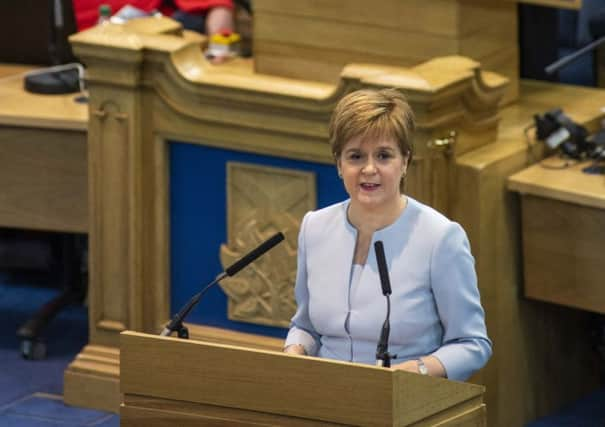Kirk ‘steps in and plays vital role’ in Scotland says First Minister


Nicola Sturgeon, in a speech to the 2019 General Assembly of the Church of Scotland yesterday, said the Kirk played a vital role in Scotland’s national life and also praised the General Assembly’s support for interfaith co-operation.
“I know that the Muslim community in Scotland greatly appreciated the expression of solidarity that the Church issued - together with other Christian churches – in the aftermath of the Christchurch shootings.
Advertisement
Hide AdAdvertisement
Hide Ad“At a time when intolerance and bigotry appear to be on the rise in parts of the world, it is vitally important – and hugely appreciated – that the major faiths in Scotland stand so strongly together in solidarity.
“So it is because of all of this - and indeed much, much more - that my main message this morning is a simple, but very heartfelt one. “
Ms Sturgeon said her speech at the Assembly Hall marked 20 years to the day since she first spoke as an MSP in the same building, home to the Scottish Parliament after it was reconvened in 1999 until it moved to Holyrood in 2005.
“I am struck by the extent to which the Church is at the centre – not just of people’s spiritual lives – but of Scottish public life.
That of course has been the case for generations.
“For a long time after the Act of Union, the General Assembly was the most prominent forum in existence in Scotland for bringing people together from across the country to discuss the important issues of the day. It is therefore served – in the words of Professor Tom Devine – as “a kind of surrogate parliament”.
She then highlighted Scotland’s new Social Security Agency and the new Citizen’s Assembly on Scotland’s future which she said aimed to promote a sense of well-being in Scotland’s communities.
“Setting up a new agency – especially one which will deliver vital payments to millions of people – is a hugely complex task. It requires a major focus on IT capabilities, finance, logistics and many other things,’ Ms Sturgeon said.
“However we have tried to ensure that all of that work is underpinned by a statement of values – by a deep respect for human rights and human dignity. Again, it’s a way in which we seek to ensure we don’t lose sight of what really, really matters. “
Advertisement
Hide AdAdvertisement
Hide AdLater, commissioners debated a report from the Church and Society Council, convened by the Rev Richard Frazer.
The report noted some of the positive outcomes of the Scotland Act 2016 which saw certain areas of social security devolved to the Scottish Parliament. It noted: “Using its newly devolved powers the Scottish Government has put some measures in place to mitigate the impacts of Universal Credit, such as requiring automatic split payments for anyone in Scotland who receives Universal Credit, They have also set up Experience Panels to inform policy on welfare and will ensure the voices of people who experience of the welfare system are heard.”